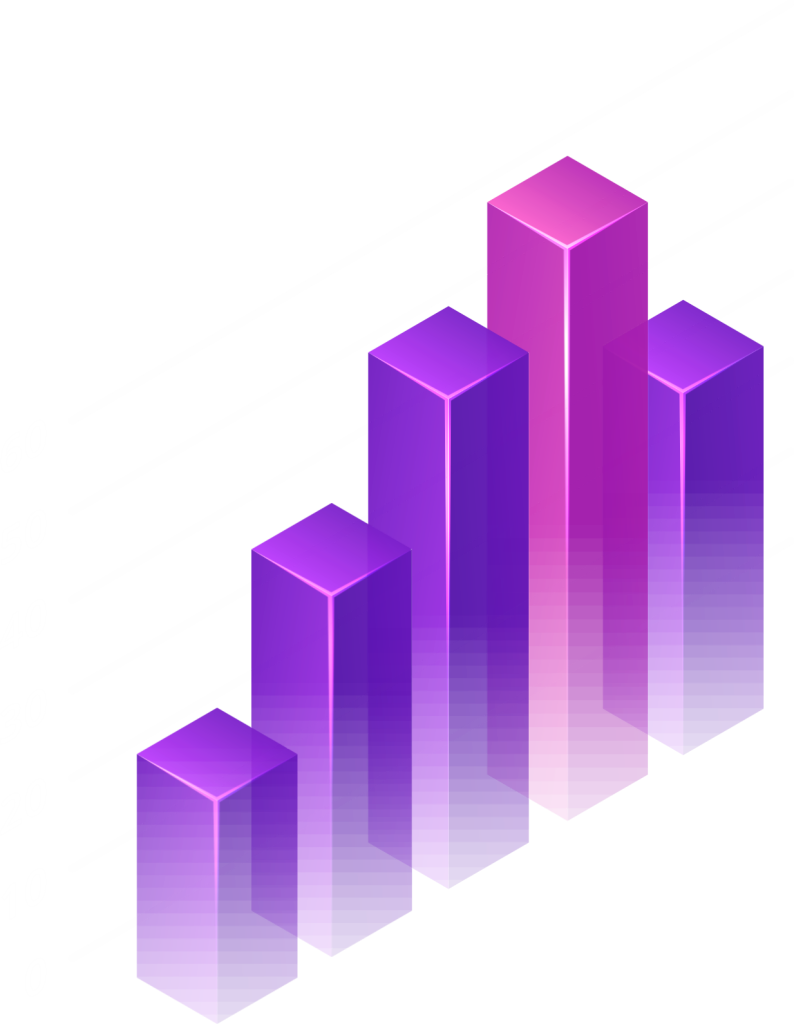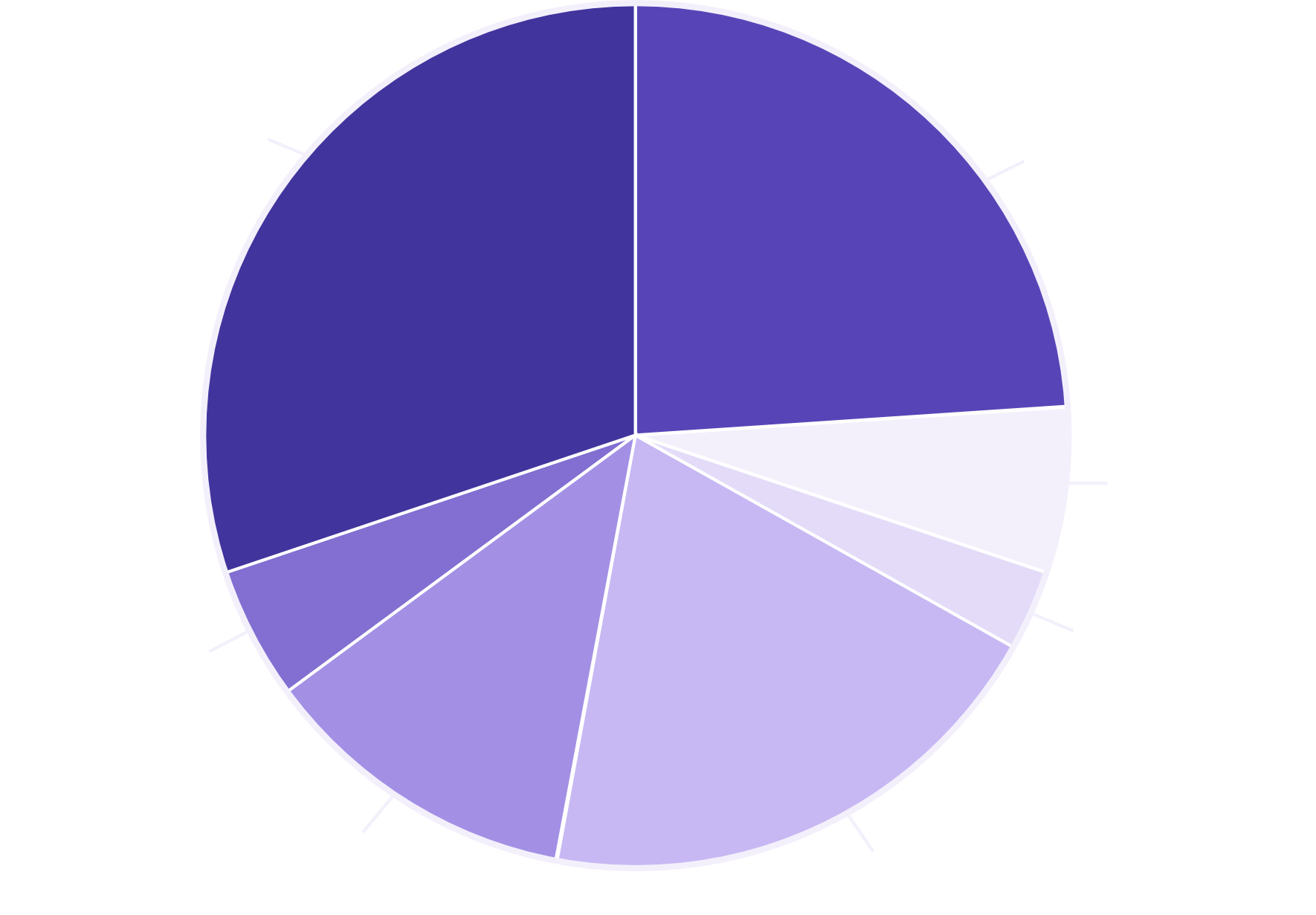WHITEPAPER
PROJECT OVERVIEW
WHAT IS NAQDI?
NAQDI produces the world's digital items for the Muslim world.
NAQDI started working on a mission to produce premium digital currency for the Arabic & Muslim world, because we believe that digital currency are the future of consumer products, playing a central role in providing a unique digital cryptocurrency ownership and the way we express ourselves as individuals.
We see NAQDI s filling the need for a truly Muslim finance to facilitate digital currency, sharia finance enabled products for home finance, credit cards, money transfer, ecommerce purchases and general purchase facilitator. Our range of credit cards and personal financial products will help address the needs of more than 1.5bln Muslims who are unbanked and are not catered for by the current financial systems.
We envisage thousands of brands and companies trust NAQDI to produce premium digital currency and experiences for over one billion Muslims worldwide. We are also creating an 3 tokens NAQDI (Gold, Silver, Bronze) to help finance organisations in the Arab & Muslim worlds and Central banks to use this conversion which is based on the value of these precious metals to trade within each other and allocate an accurate value to products and services and help preserves the wealth of companies and individuals.

OBJECTIVES
THE CONCEPT
THE SOLUTION
THE VISION
Naqdi is the first world’s first decentralised payment gateway solution to bridge the gap between Fiat & Crypto as
well as offering a bespoke ethical islamic Finance economics.
OUR MISSION
WE WANT TO ESTABLISH NAQDI GOLD, NAQDI SILVER AND NAQDI BRONZE AS THE DEFAULT CURRENCY FOR THE MUSLIM WORLD
Our mission is to democratise the financial market and enable every citizen to save and protect their money from losing its value.
TOXONOMY
TOKEN INFORMATION
SYMBOL: NQD
BLOCKCHAIN NETWORK: Ethereum ERC 20/Polygon
PROJECT VALUATION: 10,000,000,000,000
TOKEN SUPPLY: 9,000,000,000,000
MAXIMUM SUPPLY: 10,000,000,000,000
INITIAL CIRCULATION SUPPLY: 9,000,000,000,000
PRICE, PRESALE: $0.00
TOKEN DISTRIBUTION

PRODUCTS
REVENUE
FINANCIAL SERVICES
Ethical and Halal Investments
FINANCIAL SERVICES
Money Transfe
FINANCIAL INTERMEDIARY
Mortgages and Business Loans

THE TEAM
GO TO MARKET STRATEGY
TODAY, WITH OVER 360 ENTERPRISE CLIENTS, NAQDI IS DESTINED TO BE THE LARGEST BLOCKCHAIN
ECOSYSTEM IN THE ISLAMIC WORLD. WITH A ROBUST NETWORK OF INDUSTRY-LEADING BRANDS.
PRODUCT VIABILITY
NAQDI is tapping into two large and fast-growing industries: Sharia Islamic finance (The global market is valued at
USD 3.5 trillion in 2020 and is expected to reach a value of USD 5.2 trillion by 2026), NAQDI offers scale by orders of
magnitude over other projects:
INTRODUCTION
ISLAMIC FINANCE
It is estimated to be professed by 20% of human population. It is followers of Islam who are the main target group of Islamic financial institutions that operate under Islamic religious law (Sharia law). However, their offer of financial services is not limited to Muslims but also available for followers of other religions.
The dynamic development of Islamic finance and its robustness for international crises are subject of scientific studies in many non-Islamic countries. Furthermore, it is analyzed how the experience of this sector may be possible to be implemented in conventional banking and what the obstacles to its development are.
Although Islamic financial instruments in many cases significantly differ from their conventional equivalents there are examples, such as investment funds, where these differences are relatively small. Islamic financial institutions’ activity remains of course consistent with the principles of Sharia law that commands participating in enterprises’ losses and gains instead of interest payments (the prohibition of Riba and PLS rule). Hence the evaluation of participation units and Sukuk certificates is based on the enterprise’s revenue.
It is estimated that assets of Islamic financial institutions will exceed the overall amount of USD 3 trillion in 2017. The aim of this paper is to analyze the development of Islamic finance and its determinants in Europe which has been the prime destination of many migrants from Muslim countries in recent years.
Research methods used in this paper include literature review, desk research analysis, case study and comparative analysis.
UNITED KINGDOM
British government published special study on the opportunities for development of Islamic finance industry in the UK, underlining in the introduction that its goal is to become a leader in this field in Europe.
The first to enter the British market with the offer of Sharia-compliant mortgages and Mudaraba products was Saudi Arabian group Al Baraka already in the 1980s.
In 2003 HSBC introduced in its offer Sharia-compliant mortgages based on Ijara. In 2007 regulations regarding Sukuk certificates were completed.
Moreover, there were introduced Sharia-compliant student loans, i.e. interest-free and without penalties for late payments.
In 2008 there were five Islamic banks operating in the United Kingdom (in 2004 first Islamic commercial bank was established – Islamic Bank of Britain and two years later first investment bank – European Islamic Investment Bank) and twenty conventional commercial banks introduced Islamic financial products.
ISLAMIC INVESTMENT FUNDS
Islamic funds in Europe and North America should be considered not as a separate group of financial instruments, but as a distinctive investment policy. Such assumption was made by Ireland, Luxembourg and the United Kingdom where the offer of Islamic funds is the greatest. In Luxembourg Islamic funds began to operate in the 1990s, in Ireland shortly after the year 2000.
Islamic funds, like their traditional counterparts, engage in leasing transactions. Funds investing in raw materials are also popular. Islamic funds can buy stocks and shares of companies – they use Mudaraba and Musharaka instruments in order to achieve this goal. There are Sharia Supervisory Boards which are a part of every Islamic fund’s structure to ensure that company’s investments are compliant with the principles of Islam.
In Saudi Arabia, where women are the next big consumer growth segment, Al Rajhi Bank, a leading Islamic bank, did not appeal to women. So, to gain affinity, the bank launched a new product – a credit card with personalised benefits for women.
In MENA, full gender parity could contribute an incremental GDP of US$600bn per year.1 The potential impact of women driving could contribute $90bn.2 Aware of the impact of gender parity, Saudi Arabia’s government formalised female employment goals under the ‘Saudi Vision 2030’, meaning women have become the next big consumer growth segment in the country.
The truth is that behind each woman wearing the black abaya and the veil lies someone who deserves to make the most of her life. Who, while being anxious or restricted, deserves opportunities to progress and to project her personality to her world, without bias.
The ones who fit the millennial bracket and mindset. While being traditionally-attuned and respectful of their culture, they are seeking progress. They are a younger generation of female employees and entrepreneurs who have benefitted from higher education and exposure to the world and to global standards. Being more world-aware than the older generation, they are demanding when it comes to getting products, services and experiences that meet their needs. They want products that are designed for them. This audience knows the power of competition and is more than willing to exercise their choices. So, no longer do reasons such as ‘this is my family’s bank’, or ‘this is my employer’s bank’, force them to be associated with any bank. They choose based on who they want, according to the benefit to their lives. And banks are obliging – even if it’s usually at salary account levels.
WORKING WITH ISLAMIC FINANCE
Islamic finance refers to how businesses and individuals raise capital in accordance with Sharia, or Islamic law. It also refers to the types of investments that are permissible under this form of law. Islamic finance can be seen as a unique form of socially responsible investment. This subbranch of finance is a burgeoning field. In this article, we offer an overview to provide elementary information and serve as the basis for further study.
The Big Picture of Islamic Banking
The concept of risk sharing is central to Islamic banking and finance. It is essential to understand the role of risk sharing in raising capital. At the same time, Islamic finance demands the avoidance of Riba (usury) and Gharar (ambiguity or deception). Islamic law views lending with interest payments as a relationship that favours the lender, who charges interest at the borrower’s expense. Islamic law considers money as a measuring tool for value and not an asset in itself. Therefore, it requires that one should not be able to receive income from money alone. Interest is deemed Riba, and such practice is proscribed.
The Bottom Line
Islamic finance is a centuries old practice that is gaining recognition throughout the world. The ethical and economic principles of Islamic finance are even drawing interest outside the Muslim community. Given the increasing development of Muslim nations, expect this field to undergo even more rapid evolution. Islamic finance will continue to address the challenges of reconciling Islamic investment policy and modern portfolio theory.
An important principle that underpins Islamic finance is it shouldn’t cause harm. For that reason, Islamic financial services should not invest in things like alcohol, tobacco, and gambling.
Islamic finance also encourages partnership. This means that, where possible, both profit and risks should be shared. This can be between two individuals, an individual and a business, or a business and a business
The Islamic Finance and Markets Review: United Kingdom
Islamic finance has been developing rapidly in the UK for over a decade, and the government has taken a leading role in legislating for its development and promotion. The UK hosted the first standalone Islamic financial institution in the EU and, according to the latest Islamic Finance Country Index (2018), the UK is ranked 17th of 48 countries in terms of its overall Islamic finance offering. This puts it in first place in Europe, and in first place among non-Muslim majority nations. The UK has a strong and proud tradition of openness and flexibility, which, combined with London’s position as a leading international financial centre and the UK’s significant Muslim population (just over 5 per cent of the UK population, according to the 2011 census), provides a strong foundation for growth. As a result of its standing, London has long been perceived as the Western hub for Islamic finance.
CONSUMER FINANCE
Shariah-compliant consumer finance providers in the UK currently occupy a niche space advancing funds to customers in the form of simple murabahah financing and offering deposit investments in the form of profit-sharing investment accounts based on the principle of wakalah. Prominent consumer finance banks in the UK include Gatehouse Bank and the Bank of London and the Middle East, as well as branches of some well-known Middle Eastern banks such as Abu Dhabi Islamic Bank, Al Rayan Bank and QIB UK.
An interesting development in Islamic consumer financing has been the establishment in the UK of Beehive, a peer-to peer financing platform that includes a shariah-compliant window. Beehive’s shariah compliant window uses commodity murabahah financing backed by the Dubai Multi Commodities Centre’s Tradeflow commodities trading platform, which is based in the Dubai International Financial Centre (DIFC). If an investor wishes to invest in shariah-compliant transactions only, it can indicate that preference in its profile.
Beehive uses the Shariyah Review Bureau, which is licensed by the Central Bank of Bahrain, as its shariah board to review potential opportunities for investment. Any investments that are not approved as shariah compliant by Beehive’s shariah board are not made available to an Islamic investor: these are made available only to conventional investors. Assuming an investment is shariah-compliant, Islamic investors may place bids on the Beehive platform to enter into a financing with the end user in much the same manner as a conventional peer-to-peer lending platform. If successful in its bid, the Islamic investor then enters into a murabahah contract with that counterparty
HOME FINANCE
The primary structures used in home finance in the UK are ijarah and an ijarah with diminishing musharakah structure, which contain many of the features of a conventional repayment mortgage. Under the terms of an ijarah mortgage, a bank purchases a property (with title in and to the property registered in the name of the bank) and leases it to the homeowner for a specified period. The homeowner gives an undertaking that, at the end of the specified period, it will purchase the property from the bank using the final lease payment, following which legal title is transferred to the homeowner, and title in and to the property is registered in the name of the homeowner. Under the terms of an ijarah with diminishing musharakah structure, the bank and the homeowner together purchase the property in proportion to the capital put forward by each of them. However, title in and to the property is registered solely in the name of the bank. The homeowner pays the bank rent for the use of that part of the property that is owned by the bank under the terms of the musharakah. The homeowner also makes periodic payments to the bank to purchase its remaining interests in the musharakah such that the bank’s interest diminishes until the homeowner is the sole owner of the property. Once the homeowner has purchased all the bank’s interests in the musharakah (and thus is the sole owner of the property), title in and to the property is registered in the name of the homeowner and the mortgage terminates.
Islamic banks in the UK also offer rent-only ijarah mortgage packages that contain features similar to a conventional interest-only mortgage. In this scenario, a homeowner pays a bank rent for that portion of the property owned by the Islamic bank through the musharakah term. At the end of the musharakah term, the homeowner is obliged to purchase all the bank’s interests in the musharakah in one go.
Much of the growth in the shariah compliant home finance market was facilitated by an amendment to the tax laws in the UK in 2003 that removed what had previously been a double charge to stamp duty land tax: once at the date of the joint purchase of a property by a bank and a homeowner (and registration of title in the name of the bank), and second at the date of the purchase by the homeowner of all the bank’s interest in the musharakah (and registration of title in the name of the homeowner). This change in tax law is discussed in Section III.
INSURANCE
Insurance companies in the UK offer takaful products to Muslim customers using structures typical to the takaful market. As with many other facets of Islamic finance, London is seeking to become a hub of takaful, and the Islamic Friendly societies and other mutual insurance companies are potential vehicles that could be adapted to provide takaful. Friendly societies in particular have an affinity with shariah principles because all contributions to a friendly society are made voluntarily. Friendly societies have evolved in different ways over the years. Since 1992, most have taken advantage of the ability to incorporate, which allows them to undertake a defined range of activities. There would be significant challenges in establishing a new shariah-compliant friendly society since, to be authorised by the Financial Services Authority to carry on regulated activities in the UK, a friendly society would need significant amounts of regulatory capital. As a mutual institution, a friendly society does not have shareholders that might provide that capital. On the contrary, Section 5(2)(b)(i) of the Friendly Societies Act 1992 provides, in effect, that only members (or persons connected with members) can receive benefits from a society, and the converse of this is also generally held to be true, namely that a person cannot be a member of a friendly society unless he or she (or a person connected) receives insurance or similar benefits from the society.
REAL ESTATE INVESTMENTS
The Case Of The UK
Being home to 3 million Muslims, according to the Office of National Statistics in 2016, the UK is a leading hub for the Islamic finance industry in Europe.
It also has a fully Shariah-compliant retail bank: Al-Rayan Bank (formerly Islamic Bank of Britain).
“Britain is today the leading center for Islamic finance in the West, including British higher education institutions leading the non-Muslim world in the teaching of Islamic finance,” said Nyra Mahmood, managing director of the UK-based Simply Sharia Human Capital (SSHC Ltd.).
She emphasized the important role financial technology (FinTech) can play in further introducing Islamic finance and banking. “The opportunities emanating from the FinTech scene and the ethical financial space gives rise to how the UK’s Islamic finance can look at shaping and taking the lead in fulfilling the wider needs of society through technology and innovation, especially with a younger, more socially active generation wanting to join the industry,” she told Arab News.
She said the younger generation expects more from their money, as they are socially conscious and want to see companies embrace their corporate social responsibility along with being part of a financial services sector.
“These are the issues driving a new generation of Islamic finance practitioners and consumers alike, both Muslim and non-Muslim in Europe and beyond.”
Mahmood said factors that can affect Islamic finance moving forward in the UK, directly and indirectly, include the aftermath of the Brexit vote, the UK’s economic outlook for 2017 onward, and customers’ needs.
“With this in mind, the UK’s Islamic finance industry is well positioned.
“As the country looks beyond the EU, there’s an opportunity to align the UK with investors and partners from other Islamic hubs, namely the Gulf and Malaysia, which is already happening,” she said. Islamic finance has witnessed a rise in the past 10 years. Europe’s tallest building, the 95-story Shard skyscraper marking London’s landscape, was financed through Shariah-compliant instruments. Other projects such as Chelsea Barracks and the Olympic Village were also partly or wholly financed in the same manner, said Mahmood.
There is growing demand among non-Muslims for more education and awareness of the industry as well as products.
In a survey by Al-Rayan Bank in 2014, 57 percent of non-Muslim participants said Islamic finance was relevant to all faiths because they believed it was ethical.
Muslims and non-Muslims “are looking for an alternative that promises and delivers on ethical values.
The underlying principles of Islamic finance promote equity, fairness and the betterment of the wider community.”
The Case Of Spain
Spain is one of the countries curious about Islamic finance. One of its top business schools, IE Business School based in Madrid, has a center that teaches and researches Islamic finance.
“There’s a lack of knowledge in Islamic finance. Everybody is looking but no one is pushing yet,” Gonzalo Rodríguez, general coordinator at the Saudi Spanish Center for Islamic Economics and Finance (SCIEF), told Arab News during a visit in Jeddah.
“After the financial crisis (in 2008), ethical banking became much more popular, especially among young people. We believe it’s fair, ethical and based on real economy, and we try to spread this approach.
” Although Islamic finance and banking remains non-existent in Spain, it is becoming popular among finance students who wish to gain international experience. The role it plays is both educational and advisory.
“We’re trying to spread knowledge of Islamic finance in Spain, and to reach out to all players to explain to them what Islamic finance is, its potential in Spain, and the opportunities we have for Islamic finance in the country,” Rodríguez said.
“We see Islamic finance as an industry and an alternative way to make finance. It opens windows for foreign investments.”
He pointed out what he believes are the three main reasons behind growing interest in Islamic finance in Spain. First, it is seen as a new industry that is booming.
“Second, when people study Islamic finance they find it more ethical and believe in its principles.”
The third reason is that the person is Muslim and wants to adhere to his or her religious teachings.


